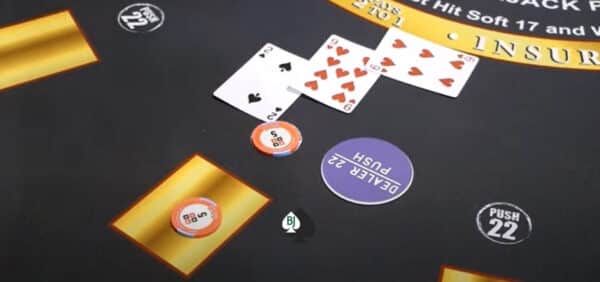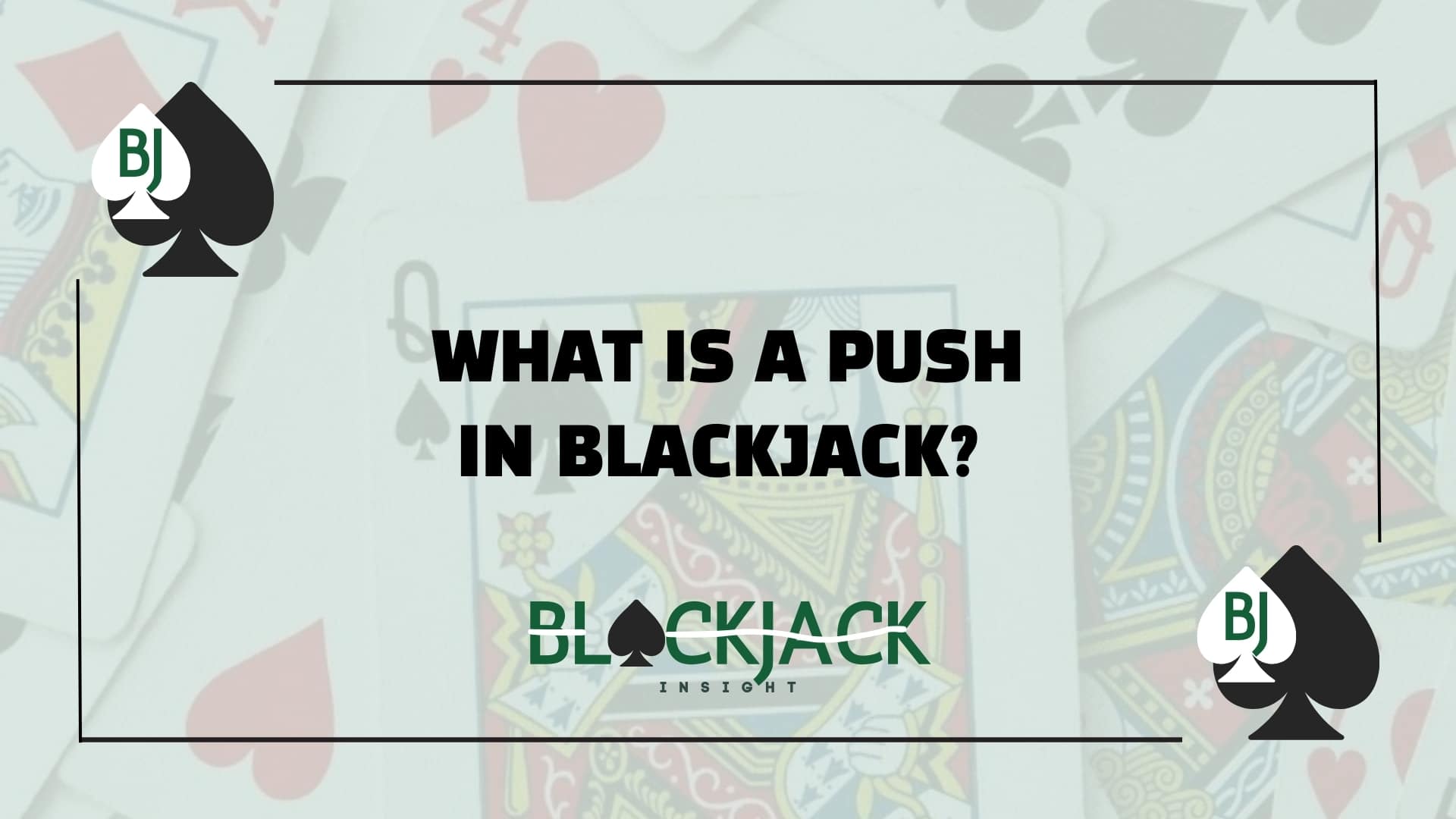What Is a Push in Blackjack? It’s Neither a Win nor a Loss!
Table Of Content
A push occurs when your total and the dealer’s total are exactly the same, returning your original bet and giving you a cost-free chance to play on. While it may feel anticlimactic, a push helps preserve your bankroll by acting like a temporary pause button.
Ever sit down at a blackjack table, play a pretty solid hand, match the dealer card for card… and walk away with exactly what you came in with? No cheers, no groans, just your chips staying put. You may question what happened and what a push is in blackjack.
Now, if you’re new to the game or even if you’ve played a few rounds but never really dug into the rules, the idea of a “push” might sound confusing. Isn’t blackjack all about winning or losing? Not quite. There’s this gray area, and believe it or not, it happens more often than you’d think.
What Is a Push in Blackjack?
A push in blackjack is when your final hand ties with the dealer’s. In other words, you both end up with the same total—typically 17 through 21—and because neither party has a higher hand, it’s considered a draw.
So, what happens? Nothing. No chips are taken, and no chips are won. Your original bet just stays with you. It’s like hitting pause on your luck. Another possibility is surrender, which leads to a different resolution; learn more in our dedicated blackjack surrender article.
Why Does a Push Matter?
At first glance, it might seem like a push is no big deal. You’re not losing anything, right? But here’s the thing: you’re also not gaining anything. And over time, especially for serious players, pushes play a subtle but important role in managing your bankroll.
Let’s say you’re betting $25 a hand. If you win, you pocket $25. If you lose, you drop $25. But if you push? You neither win nor lose—it’s a break-even hand. Multiply that over hundreds of hands, and you’ll start to appreciate how pushes can slow down the swings.

Same Score, Same Story
I remember playing in a casino in Reno, sitting next to this guy who was on a hot streak. He hits a 20 with a king and a queen, all smiles. Dealer turns over a king… and then a ten. Also 20. Boom—push. The guy was bummed. “Man, I thought I had that!” he muttered. We’ve all been there.
It’s especially frustrating when you have a great hand like 20 or even blackjack, only to see the dealer match it. Sure, you didn’t lose, but it still feels like you missed out. That’s the mental game blackjack plays on you.
When Do Pushes Happen?
Pushes typically happen under these scenarios:
- You and the dealer both have 21 (and you don’t have a natural blackjack)
- You stand on a total, and the dealer draws up to match you
- You both have a blackjack—this one stings a bit more, especially since blackjack usually pays 3:2, but in a push, you just get your bet back.
If you get a blackjack (an ace and a 10-value card) and the dealer also gets a blackjack, that’s a push. You don’t get the 3:2 payout; it’s just a tie. Feels like being robbed a little, doesn’t it?
Does a Push Count as a Win?
The short answer is no. A push is neutral—not a win, not a loss. It’s a no-decision. Think of it like a game ending in a tie. Your money isn’t taken, but it’s also not growing.
And if you’re trying to track your session—how many hands you’ve won or lost—most players don’t even count pushes in their personal win/loss tally. They’re just filler. A bit like ordering decaf at a coffee shop—it exists, but no one’s excited about it.
Is There Any Way to Avoid a Push?
Not really. If the dealer matches your total, it’s a push—plain and simple. There’s no side bet or trick play to avoid it (unless you count switching tables or leaving, I guess).
That said, some blackjack variants offer side bets or bonus features where pushes might pay something extra, but those come with their own rules and risks. If you’re just playing standard blackjack? Pushes are inevitable.
FAQs
1. Does insurance affect a push outcome?
Insurance is a separate side bet on whether the dealer has a natural Blackjack. It’s settled independently of your main hand outcome. If the dealer does have Blackjack, you’re paid on the insurance bet—even if the main hand results in a push. If the dealer doesn’t have Blackjack, you lose the insurance bet; a push can still occur on the main hand if both totals tie.
2. Can I experience a push if I choose to surrender my hand?
No. When you surrender, you forfeit half of your bet right away, and the hand ends immediately. Because you’ve already conceded, there’s no chance for a tie on that round, and thus no possibility of a push.
3. How common are pushes in Blackjack?
The exact frequency can vary based on house rules and the number of decks in play, but pushes typically occur in a modest percentage of hands. In most standard games, you might see a push happen somewhere around 8–10% of the time. While not extremely frequent, they’re common enough to consider as part of your overall strategy and bankroll management.
4. Can you still win a side bet if the main hand pushes?
Yes, side bets are separate. So if you hit something like “Perfect Pairs” and the main hand ends in a push, you’ll still get paid for the side bet if it qualifies.



